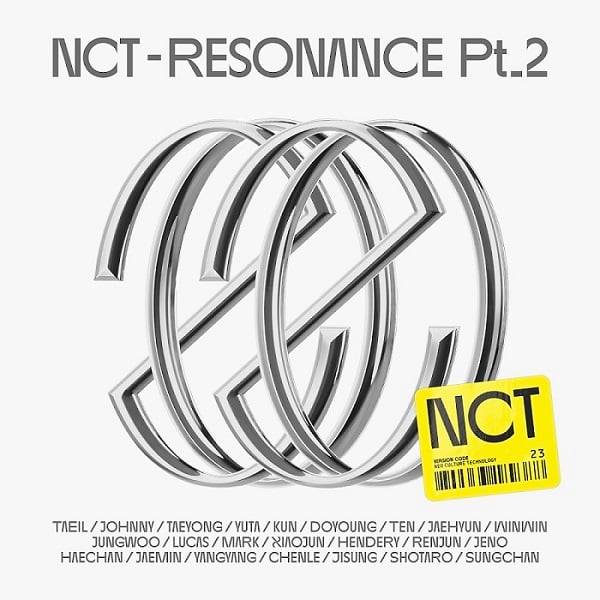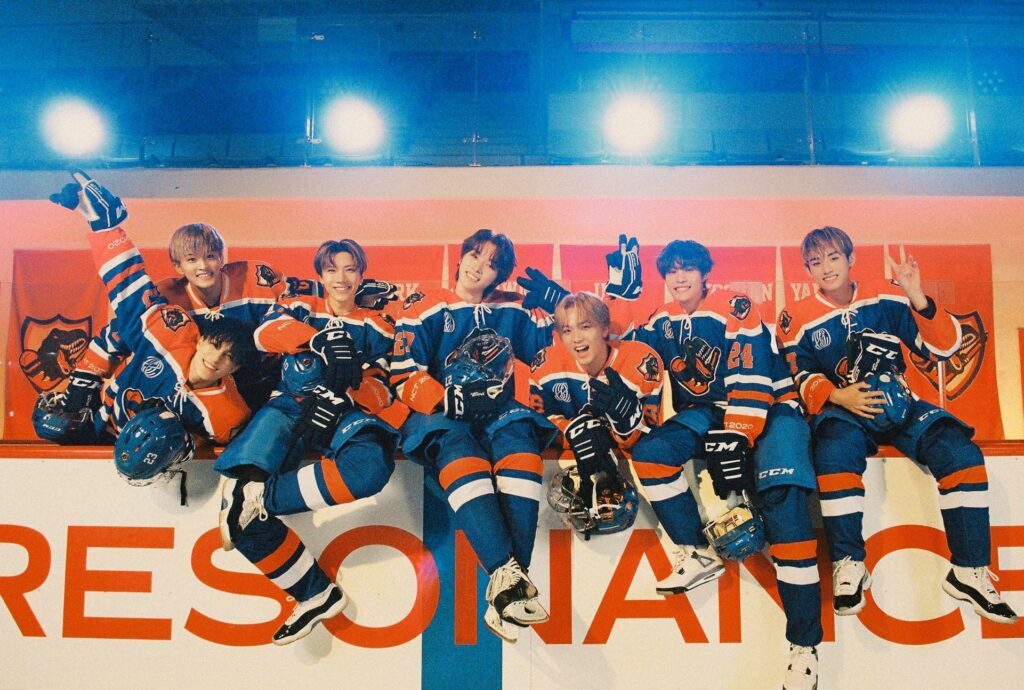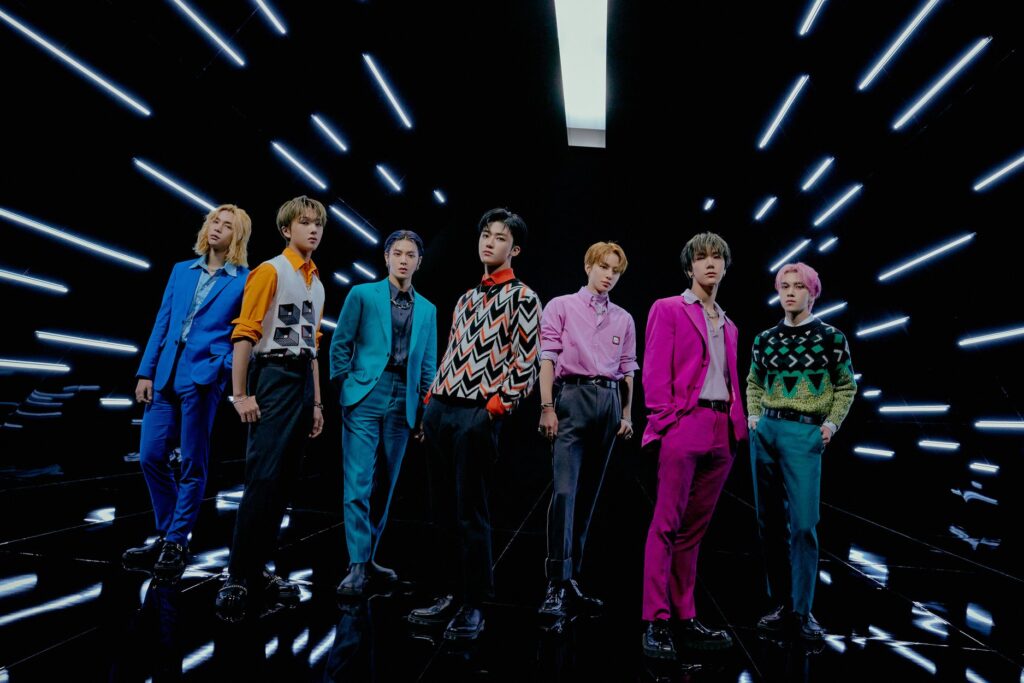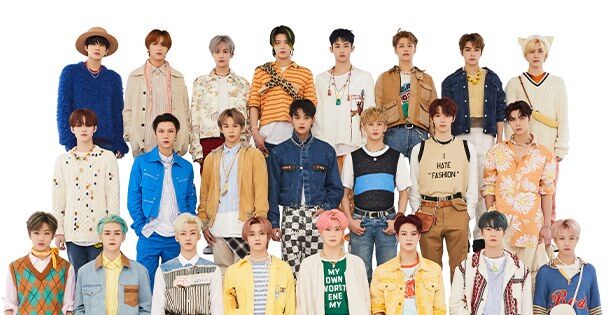
Following Resonance Pt. 1, the first chapter of their first reunion project in two years, SM Entertainment’s resident limitless boy group NCT are back with Resonance Pt. 2, a repackaged version of October’s full-length album. Pt. 2 adds eight new tracks to the project, including an instrumental interlude and outro, resulting in a hefty 21-track album that runs for well over an hour and which features the voices of all 23 current members. Like Pt. 1, which was spearheaded by double title tracks featuring new mixed subunits, Pt. 2 is also led by two new units, promoting the songs “90’s Love” and “Work It” respectively.
With a powerful momentum that first began to snowball in early spring, the multi-unit group look set to finish the year on a high, with combined sales figures for both parts of this album already exceeding a million and a busy season of award shows ahead. Music-wise, Resonance Pt. 2 consolidates everything that the NCT group have worked on this year (and indeed the last few years since 2018’s Empathy), melting the subunits’ individual styles and successfully remoulding them into one united identity – that of the singular entity, Neo Culture Technology.
Pt. 2 first supplements Pt. 1’s past-to-present time-travel concept with a selection of additional retro-inspired songs, distributed on the album’s existing first chapter. Following the more contemporary songs on the second chapter, it then extends the concept further with a new third chapter that looks towards the future, bookended neatly with the instrumentals, “Interlude: Present to Future” and “Outro: Dream Routine”.
“90’s Love” opens this new version of the album, as one of two title tracks and the single best new song on the project. Mixing gritty 90s old-school hip-hop beats with bright pop melodies and rap, NCT effectively refresh the current retro revival with a fresh take that samples the best of past eras without relying too heavily on the nostalgia factor. The acoustic drumbeats are a pleasant change to the heavily processed electronic drum sounds usually heard from boy groups (including NCT), and the lengthy instrumental intro provides space for the song to fully develop, in a way that few title tracks are willing to afford listeners nowadays. The song’s climax sees Ten and Haechan belt adjacent high notes simultaneously, creating a dissonance that should sound jarring, but is instead electrifying.

Within this same retro-inspired first chapter, Pt. 2 adds another two new songs: the EDM-hip-hop club banger, “Raise The Roof”, and the pretty piano ballad, “My Everything”. The former features some lovely vocals from NCT Dream’s Renjun, but ultimately it is let down by instrumentation and hooks that are overly basic and uninventive, and which as a result fail to stick.
The latter, meanwhile, unites the main vocalists from each team, Taeil, Renjun and Xiaojun, with a beautiful sentimental ballad that pairs each voice with a simple piano accompaniment. Carried by strong melodies and vocal performances, “My Everything” fulfils a potential that was missed on Pt. 1, but as a ballad about lost love, it feels a little misplaced on an album that is overall much more upbeat, optimistic and edgy than this song suggests.
After the album’s second chapter, comprising a number of contemporary-style songs such as “Make A Wish”, we then arrive at the new future-inspired section, starting with the seventeenth track, “Interlude: Present to Future”. This instrumental is the follow-up to Pt. 1’s “Interlude: Past to Present”, which took listeners on an auditory journey through time, starting from the 80’s.
“Interlude: Present to Future” attempts to do something similar, with a dramatic musical transition from modern EDM to something more futuristic, defined by distorted synths and powerful electronic drums. It extends the storyline begun by the first interlude, but as it doesn’t manage its dynamics quite as well, the story becomes a little harder to understand. If this is a preview of what SM imagines NCT’s future style to be like, then frankly, it doesn’t seem a whole lot different from what it is now.
In any case, this opens through to the second title track, “Work It”. Performed by a selection of NCT’s quirkier characters, this is an equally quirky yet addictive earworm of a dance track, which combines percussive beats and a variety of rap and vocal quips with club synths and autotune that are just cheesy enough to be enjoyable. With a minimalistic instrumental and heavy focus on danceable rhythms, “Work It” feels like a natural extension of “Music, Dance”, an NCT 127 song which appears earlier in the album, but with more feel-good factor.

“All About You” and “I.O.U” then draw the album to a quiet close, with sweet, uplifting melodies and softer, dreamier instrumentation. After a long tracklist, this period of rest is welcome, but that doesn’t mean these songs are forgettable. “All About You” offers clean pop refreshment in the vein of artists like Shawn Mendes and Lauv, while “I.O.U” layers smooth R&B vocals on top of Christmassy lo-fi-treated samples; unlike “My Everything”, both of these explore NCT’s softer side without sacrificing their contemporary roots.
Finally, “Outro: Dream Routine” ends the album with a much-anticipated clue about the next step in SM’s plan for global domination. The 50-second instrumental folds distorted voices into a bass-heavy riff that ends with a line spoken in Japanese – “夢は叶う”, or “dreams come true”. As many are speculating, this most likely foreshadows a new Japanese subunit in the coming year, especially since 2018’s Empathy ended with a similar outro that hinted at the debut of NCT’s Chinese subunit, WayV.

Whether or not this is correct, though, the future looks bright for NCT. As evidenced by the striking success of NCT 2020 and both parts of their album, 2021 will likely only extend the upward rise that the group and its subunits have seen this year, bringing them to new heights and firmly lodging them in the top echelons of this generation. Resonance is an album that fully represents not only what its many members are capable of, but also what SM are able to achieve, using the combined power of high-quality production, marketing, artist talent and sheer creative will. NCT is more ambitious a project than almost any other K-pop company have attempted, and the fact that they are now seeing fruition after four years is a sign that, despite their age, this is a company with a lot left in them yet. So, if you haven’t yet jumped on the NCT bandwagon, then there is no better time to do it than now.
(YouTube [1]. Images via SM Entertainment.)


